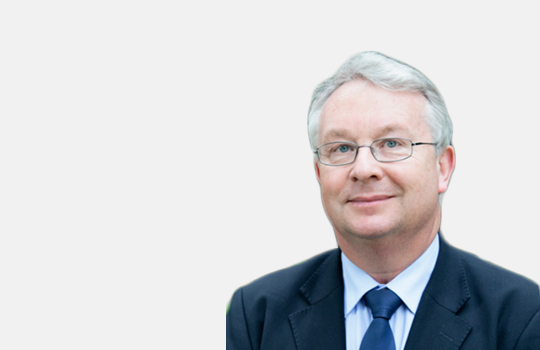Politicians must avoid saying things that stir up hatred of others, says Martin McKee
Outbreaks of disease can bring out the best in people. In the course of a few days over 750,000 people in the United Kingdom responded to a call to volunteer to help the NHS. Online communities are emerging, linking people who cannot meet face to face during the current crisis via the internet. Everyday there are examples of ordinary people making small acts of kindness. Health workers, often at considerable risk to themselves due to a failure to procure adequate personal protective equipment and testing, are working to the point of exhaustion. They are not alone in this. Others, such as shop assistants, are also going the extra mile to ensure the availability of food in the face of widespread panic buying.
But not everyone has responded so positively. In the days after Boris Johnson, the UK’s prime minister, instructed people to remain at home except for essential journeys, large numbers congregated in holiday areas and other public gatherings. Several towns and cities have suffered spates of burglaries by those taking advantage of empty premises. Police seeking to enforce rules on public gatherings have been abused and, in some cases deliberately coughed over.
Maybe we just need to accept that these things will happen. There are always people who will refuse to obey rules, even when they are imposed for their own safety. And there are always people who will take advantage of any opportunity. Those in England who invoke the sense of community during the Second World War ignore how criminals exploited the opportunities during the Blitz. But there are other things happening where some politicians may be making things worse. Members of the Chinese and other East Asian communities have reported growing numbers of attacks on them, many by individuals invoking the coronavirus. This has even given rise to a new word, “maskophobia”.
Throughout history, severe outbreaks of disease have caused widespread fear, leading affected communities to look for explanations. Often, this has involved blaming others. During the Black Death in 1348, blame fell on the Jews, who were accused of poisoning the wells. Often, they seemed relatively spared, now thought to be due to their relative isolation in ghettoes or their higher standards of hygiene enshrined in Jewish law. Massacres spread across Europe and in many cities, such as Mainz and Strasbourg, Jewish communities were annihilated.
Across the Atlantic, the 1832 outbreak of cholera was blamed on the Irish and African Americans. A common view was expressed by one of the few upper class New Yorkers who remained in the city when he wrote “Those sickened must be cured or die off, & being chiefly of the very scum of the city, the quicker [their] dispatch the sooner the malady will cease.”
Given the lessons of history, it is surely incumbent on politicians to seek to bring their communities together and, above all, avoid allocating blame. Yet some are doing precisely the opposite. In the United States a Republican Congressman has suggested that the discredited theory that the virus was created in a Chinese bioweapons lab is “worthy of investigation”. President Trump repeatedly refers to the Coronavirus as the “Chinese virus.” His National Security Council has prepared talking points that allege a Chinese cover up.
By now, one might think that the President’s comments, whether in often incoherent comments to the media or in tweets, would attract little credibility. Yet his poll ratings are actually increasing. Moreover, his supporters do seem to be swayed by what he says. A recent NY Times article brought together a diverse selection of evidence showing how beliefs about Coronavirus are now highly partisan, ranging from the finding that people living in Republican supporting areas were much less likely to search online for “hand sanitizers” to survey data showing a wide gap between Republicans and Democrats when asked whether they see it as a serious threat. In these circumstances, it is difficult to avoid drawing a link between the President’s comments and the large increase in attacks on Americans of Chinese origin being reported. As worrying is his suggestion that health workers may be stealing essential supplies, despite a complete lack of evidence that this is so. This spread of misinformation is happening in a country where a large, and growing, proportion of the population own guns, and where an individual holding extremist views has already tried to bomb a hospital containing Coronavirus sufferers.
President Trump is not the only political leader to spread unorthodox views. Jair Bolsanaro in Brazil, views the pandemic as a “media trick”. Alexander Lukashenko, in Belarus, prescribes saunas and vodka. But his policy of blaming others for his own failings is, while consistent with his approach to almost everything, especially dangerous now.
But what about the UK. Surely no responsible politician would act in this way? Well, maybe not so blatantly. Yet Michael Gove, under pressure in the face of widespread failings to ensure that NHS and social care staff have adequate protection, appears to have joined in with criticism of the Chinese. Meanwhile, a leading Sunday newspaper quotes unnamed Downing Street sources saying that China faces a “reckoning” over its handling of the outbreak, risking becoming a “pariah state”. In the same edition, it suggests, totally without evidence, that the Prime Minister, now suffering from coronavirus, may have contracted it from the EU’s chief negotiator Michel Barnier.
Words have consequences, especially when amplified by media outlets that seem determined to inflame hatred of others. Politicians, wherever they are, should think very carefully before speaking in the present circumstances.
Martin McKee is professor of European public health at the London School of Hygiene and Tropical Medicine.

